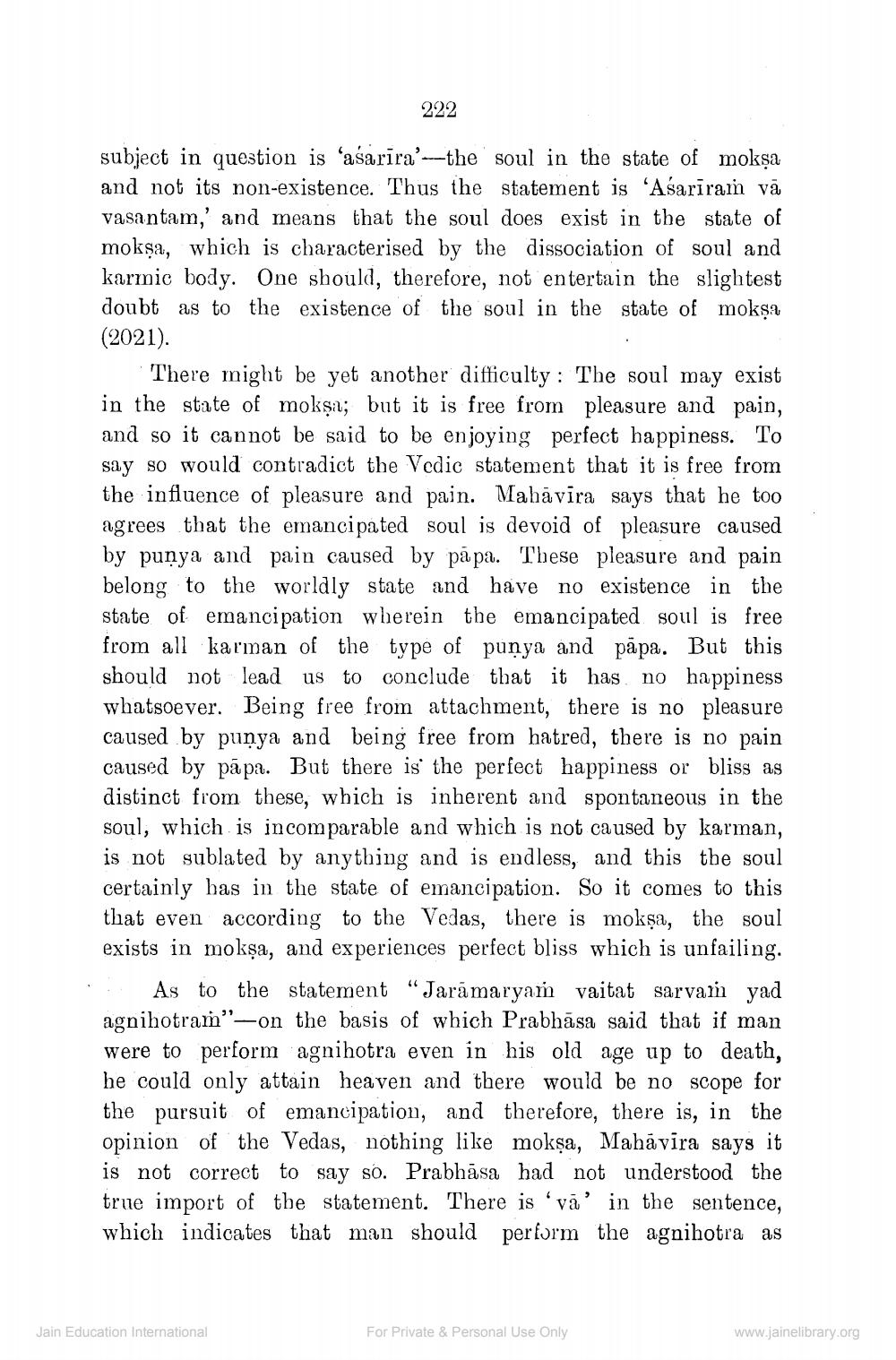________________
222 subject in question is ‘asarira'--the soul in the state of mokşa and not its non-existence. Thus the statement is 'Asarīram vā vasantam,' and means that the soul does exist in the state of mokşa, which is characterised by the dissociation of soul and karmic body. One should, therefore, not entertain the slightest doubt as to the existence of the soul in the state of mokşa (2021).
There might be yet another difficulty: The soul may exist in the state of mokşit; but it is free from pleasure and pain, and so it cannot be said to be enjoying perfect happiness. To say so would contradict the Vedic statement that it is free from the influence of pleasure and pain. Mahāvīra says that he too agrees that the emancipated soul is devoid of pleasure caused by punya and pain caused by pāpa. These pleasure and pain belong to the worldly state and have no existence in the state of emancipation wherein the emancipated soul is free from all karman of the type of punya and pāpa. But this should not lead us to conclude that it has no happiness whatsoever. Being free from attachment, there is no pleasure caused by punya and being free from hatred, there is no pain caused by pāpa. But there is the perfect happiness or bliss as distinct from these, which is inherent and spontaneous in the soul, which is incomparable and which is not caused by karman, is not sublated by anything and is endless, and this the soul certainly has in the state of emancipation. So it comes to this that even according to the Vedas, there is mokşa, the soul exists in mokșa, and experiences perfect bliss which is unfailing.
As to the statement "Jarā maryam vaitat sarvam yad agnihotram"-on the basis of which Prabhāsa said that if man were to perform agnihotra even in his old age up to death, he could only attain heaven and there would be no scope for the pursuit of emancipation, and therefore, there is, in the opinion of the Vedas, nothing like mokşa, Mahāvīra says it is not correct to say só. Prabhāsa had not understood the true import of the statement. There is 'va' in the sentence, which indicates that man should perform the agnihotra as
Jain Education International
For Private & Personal Use Only
www.jainelibrary.org




